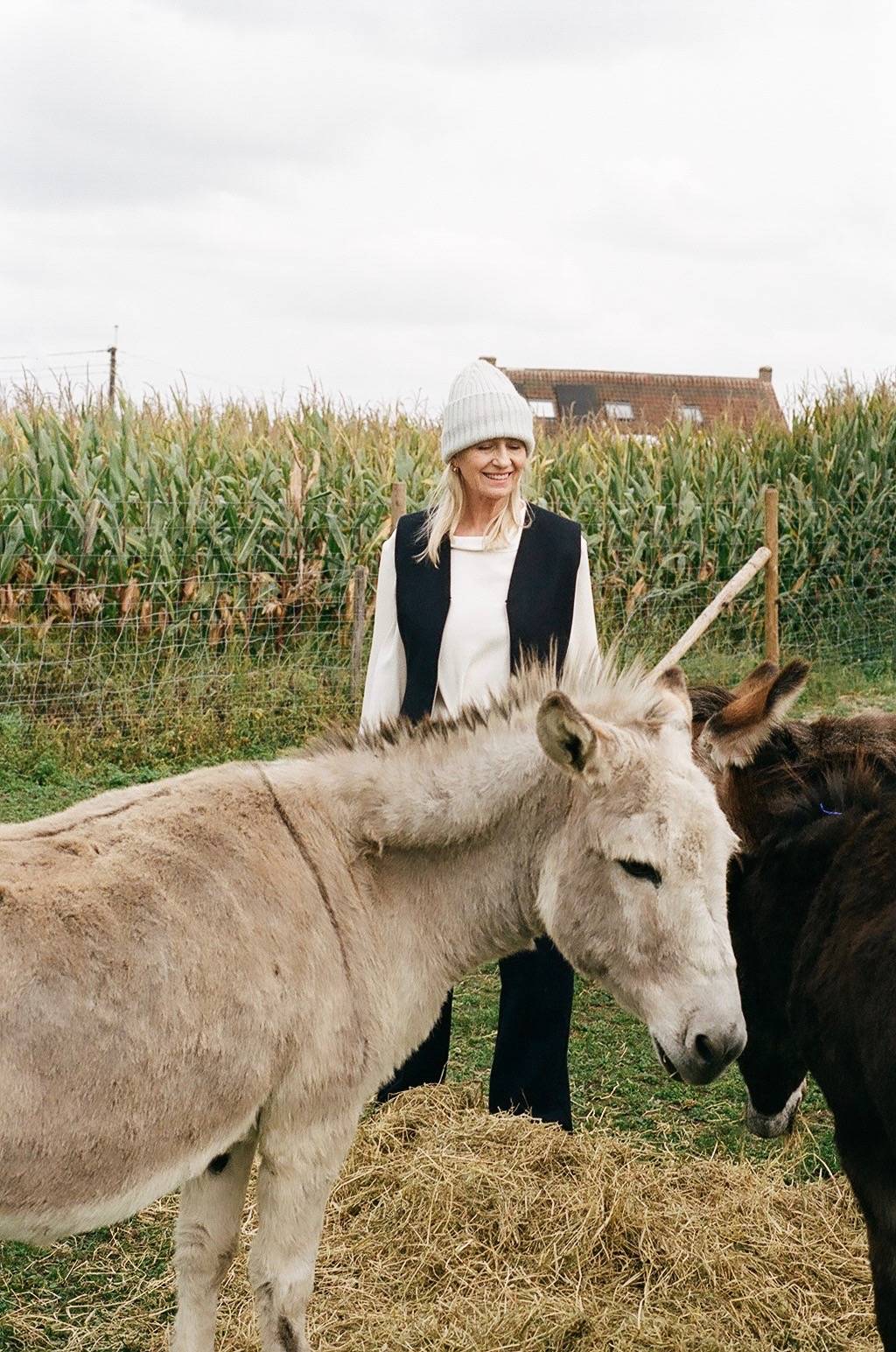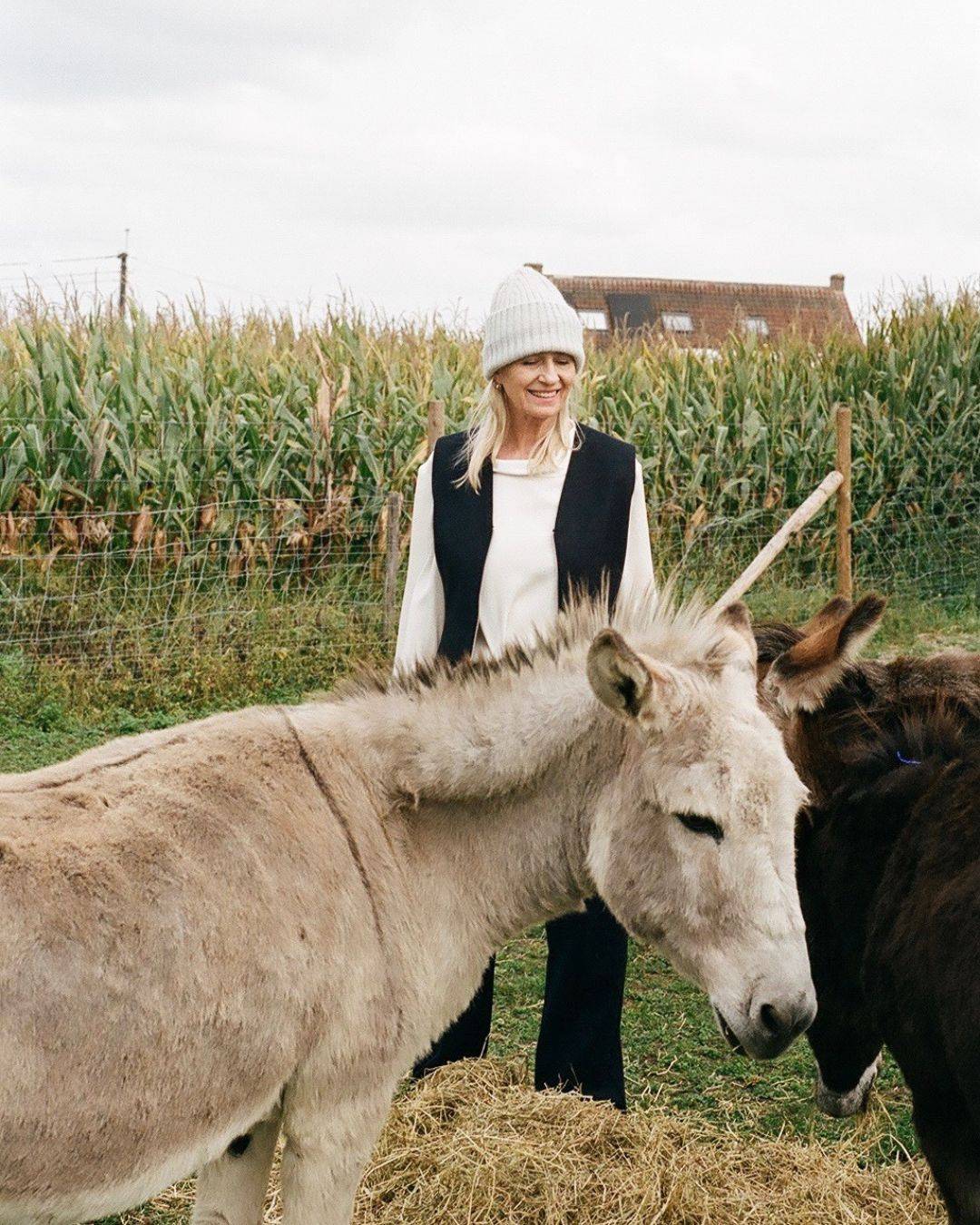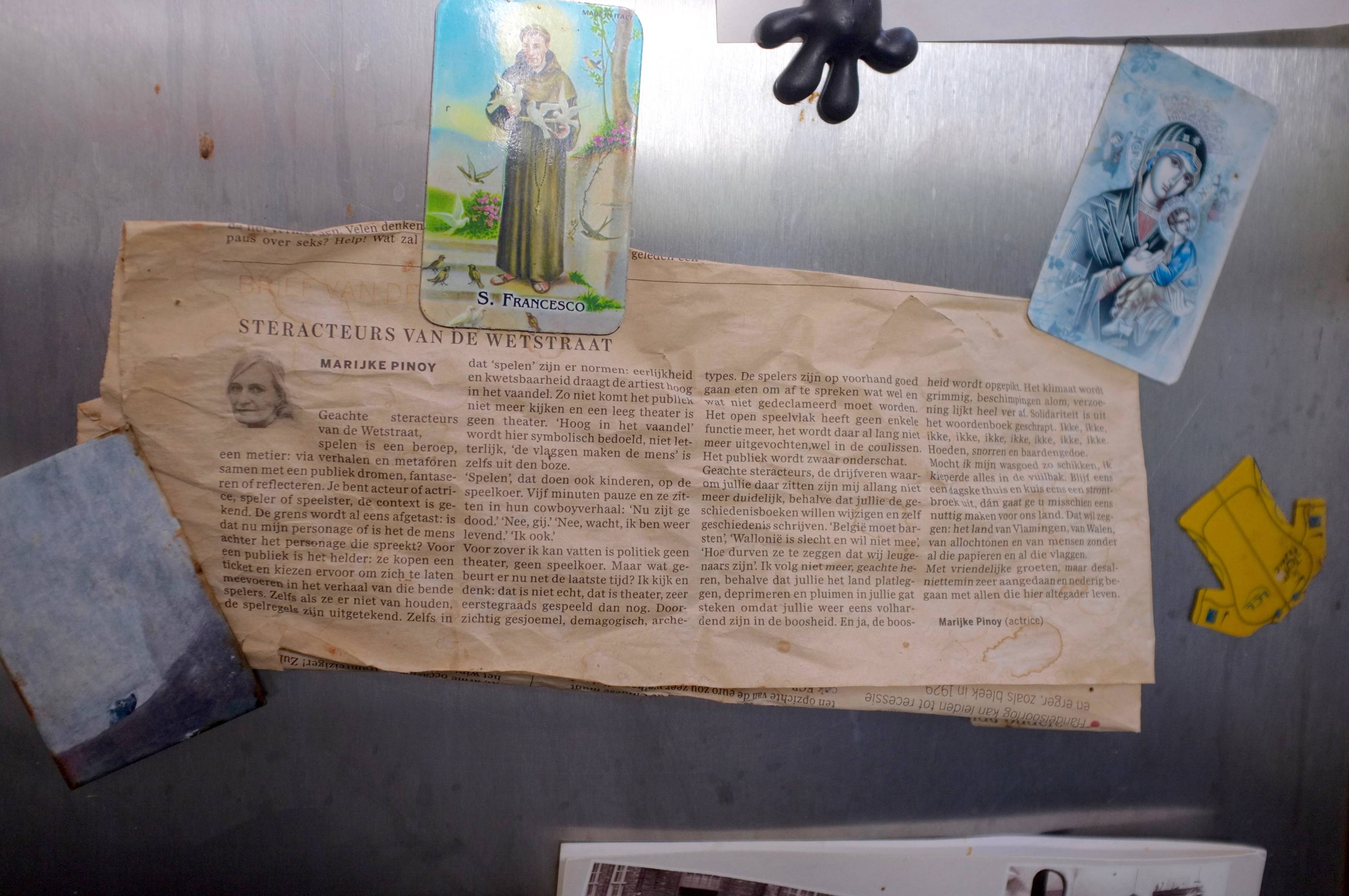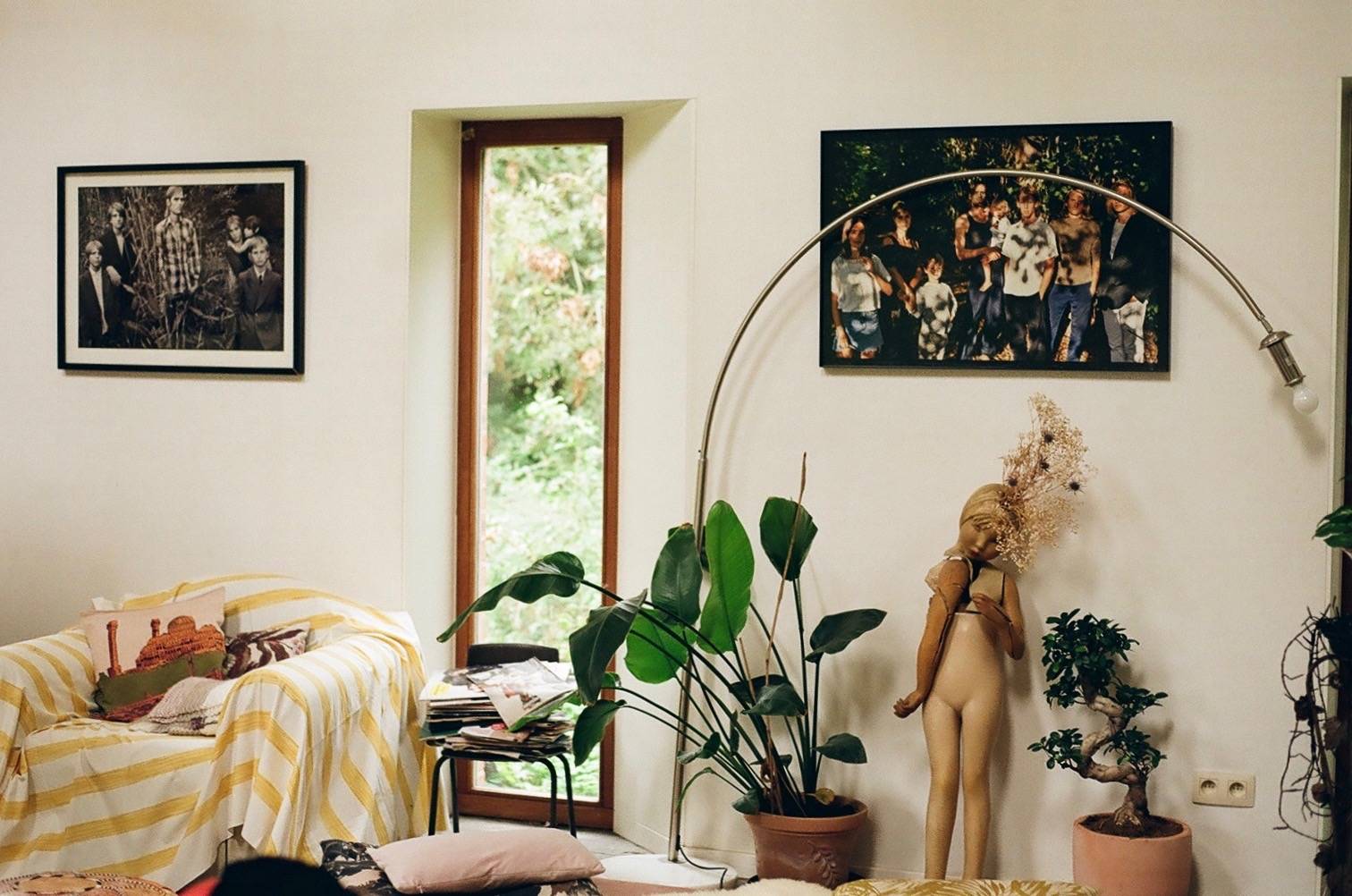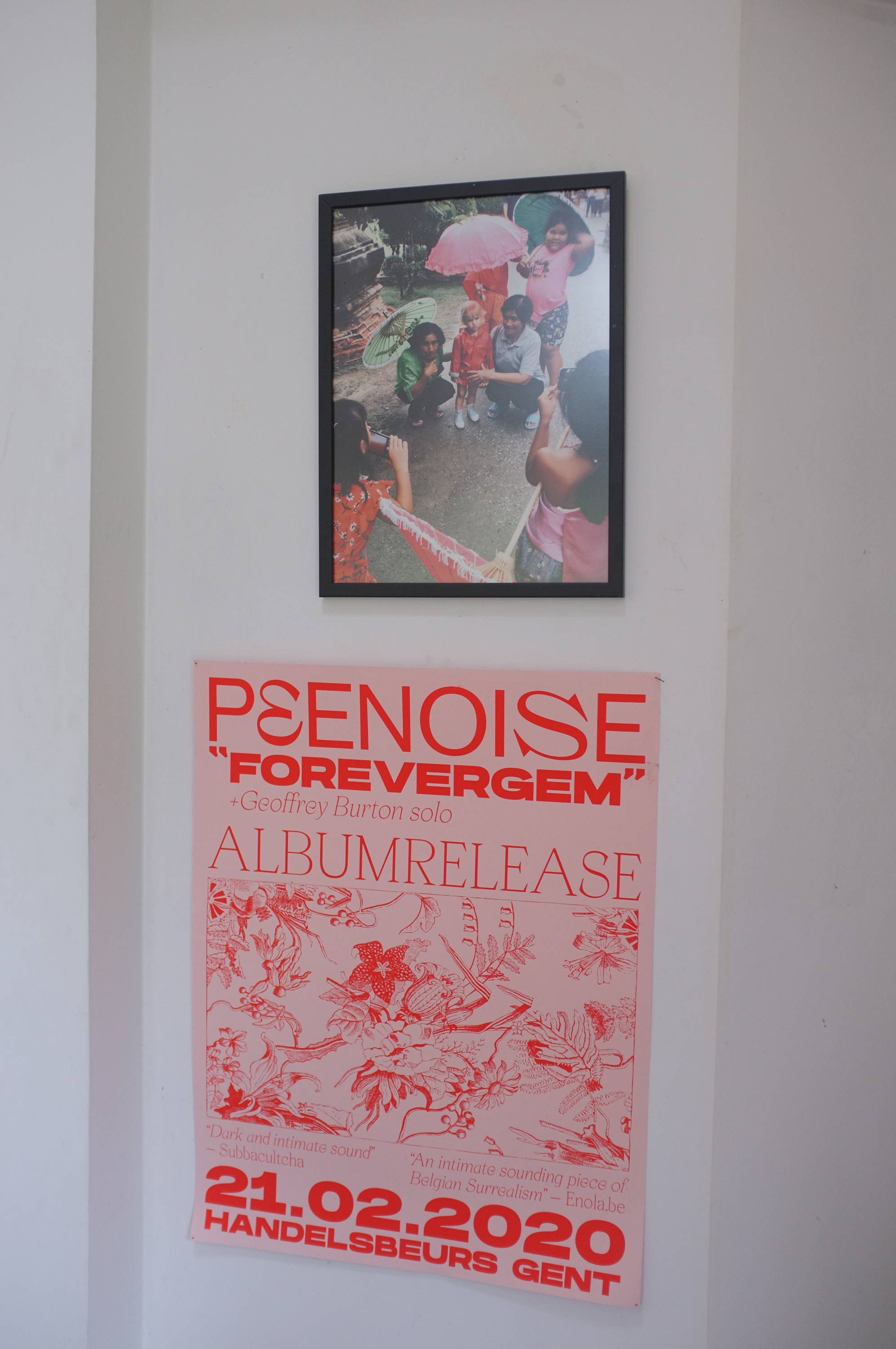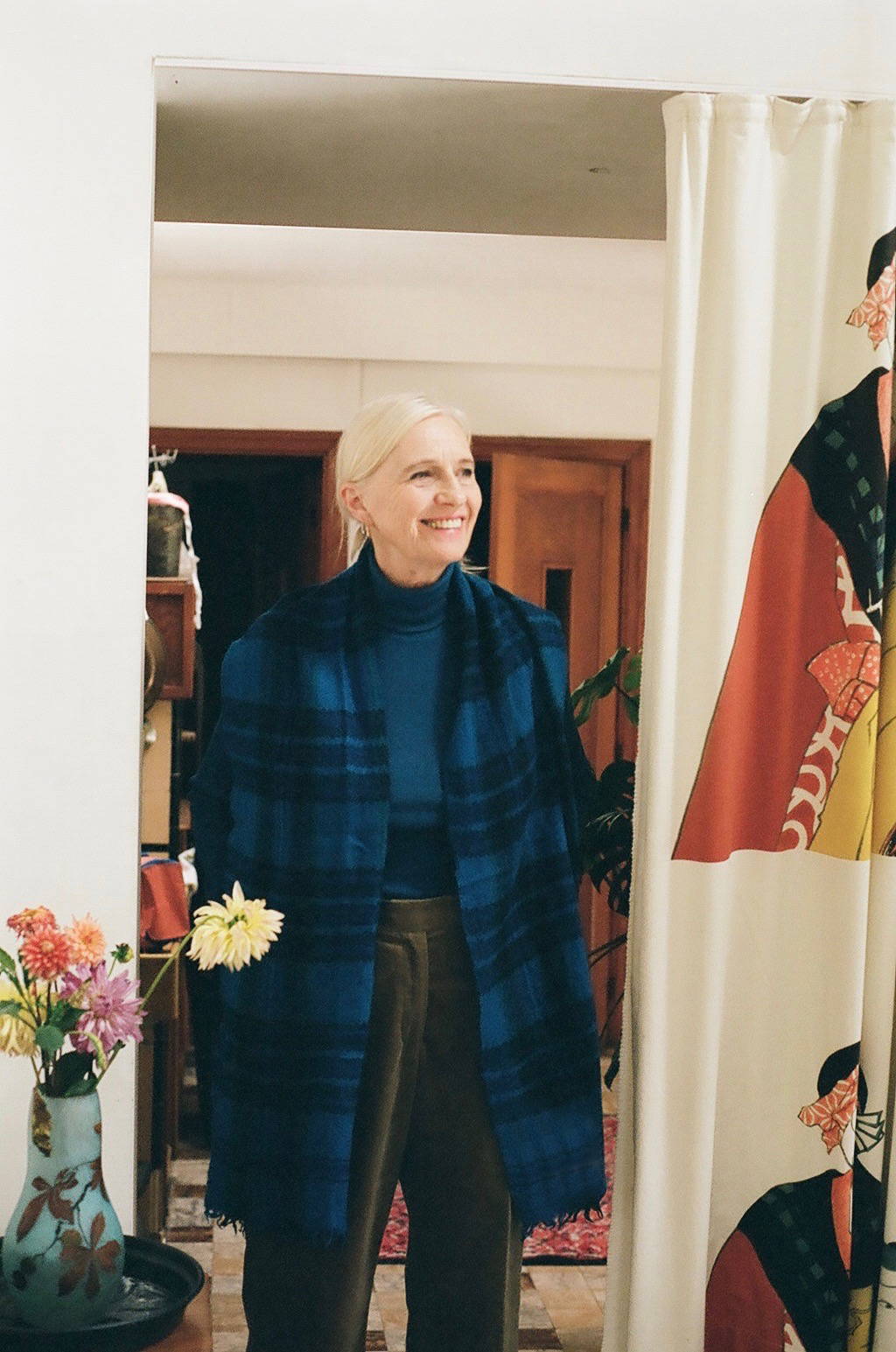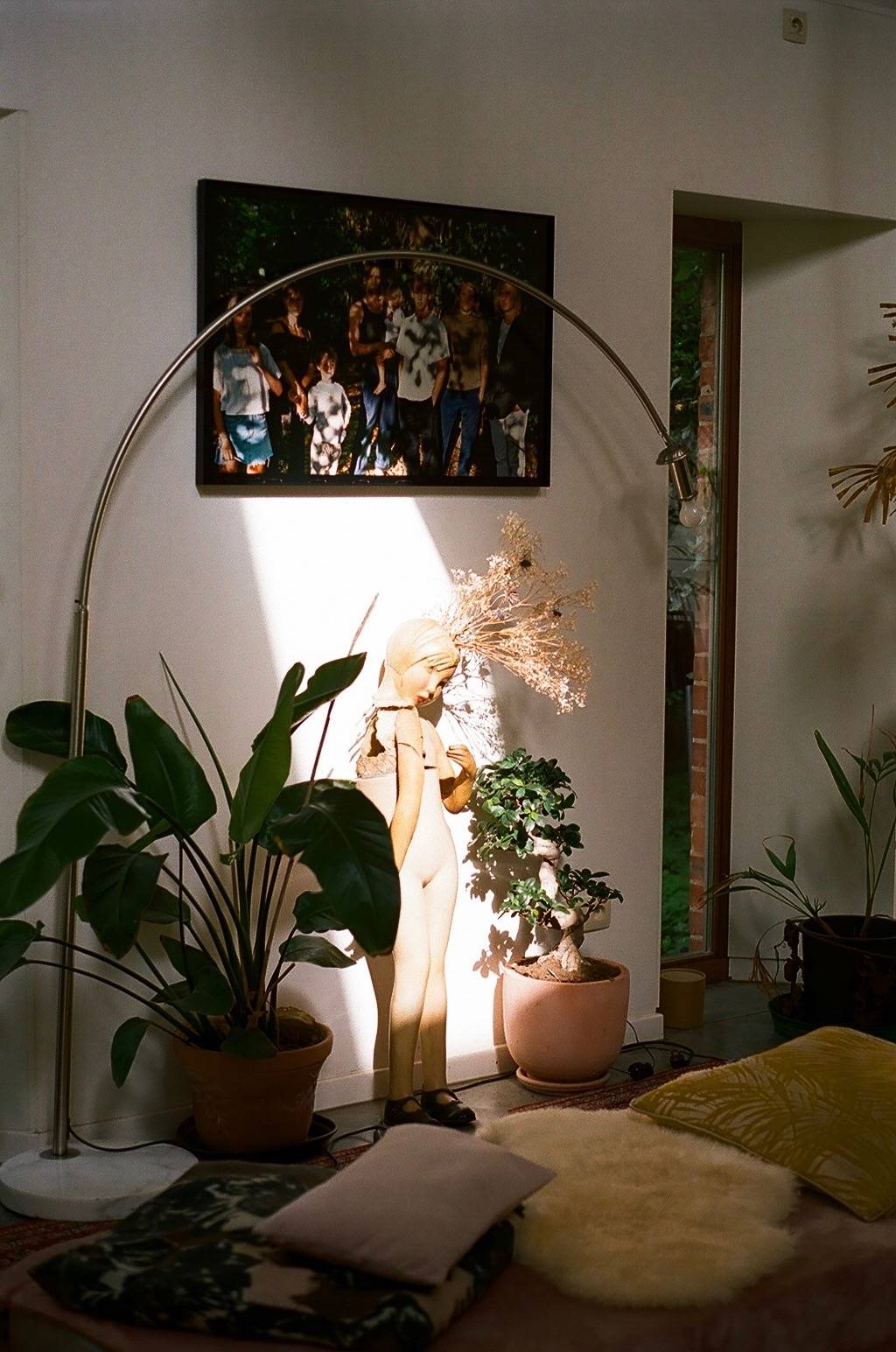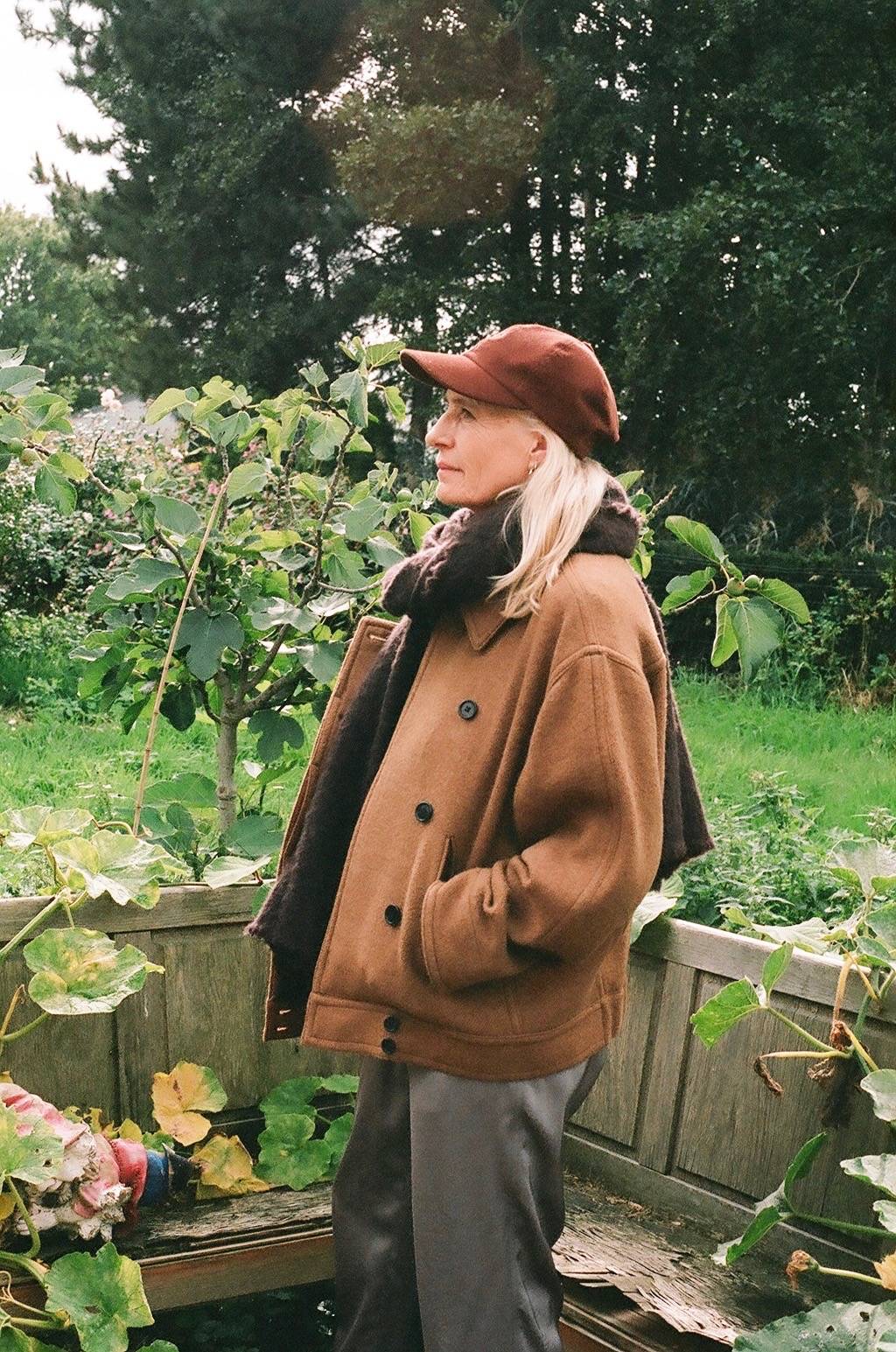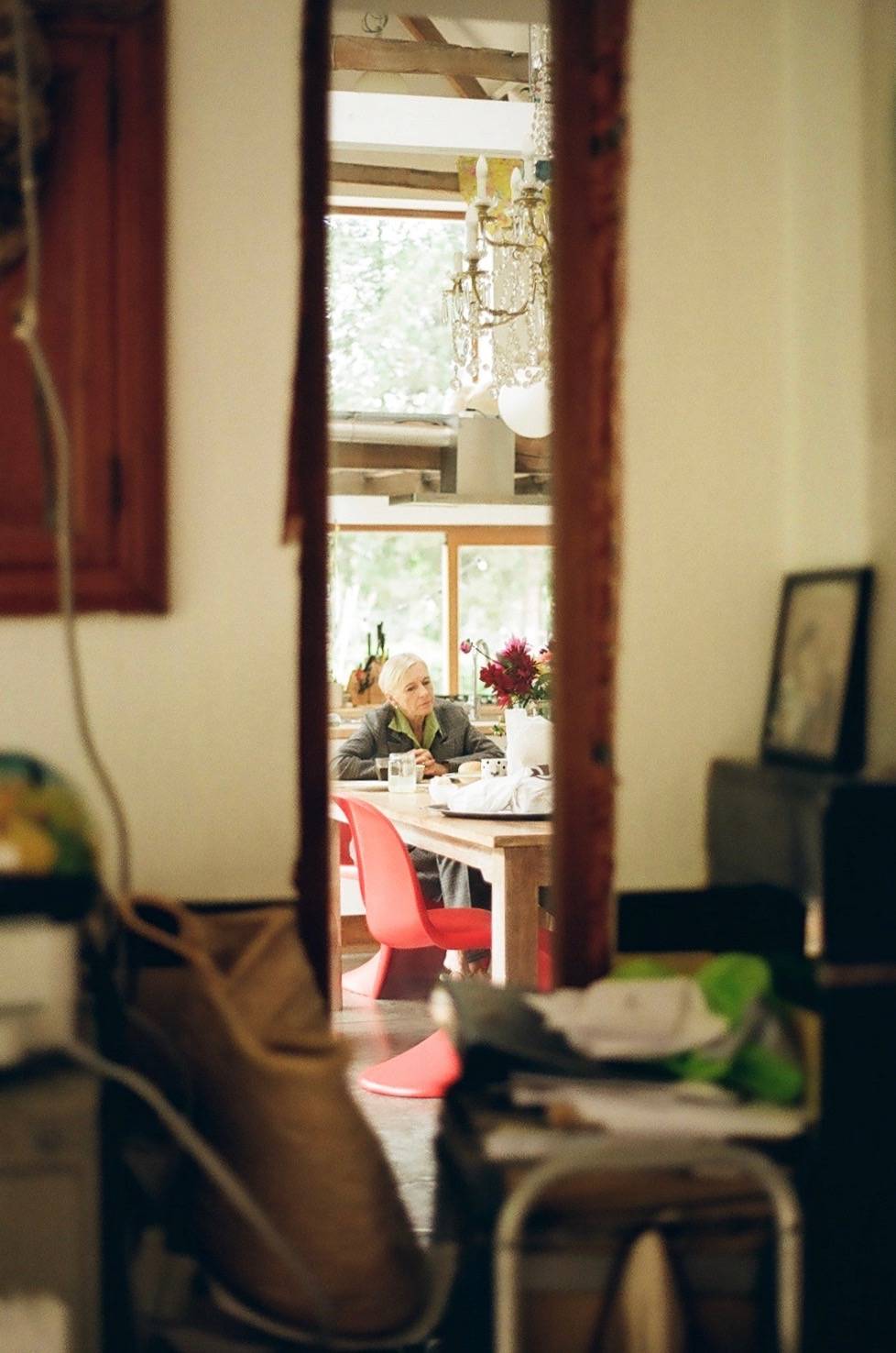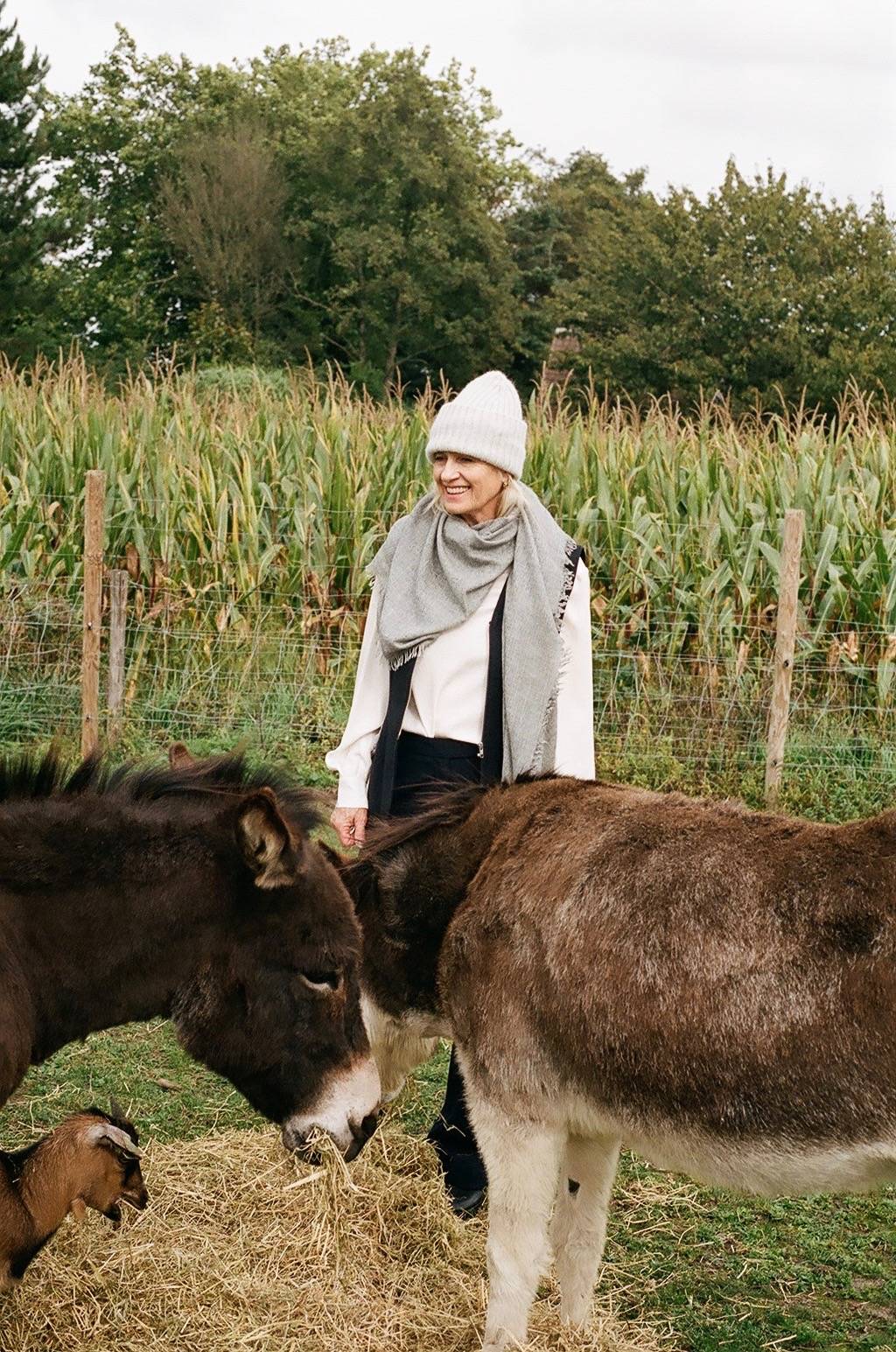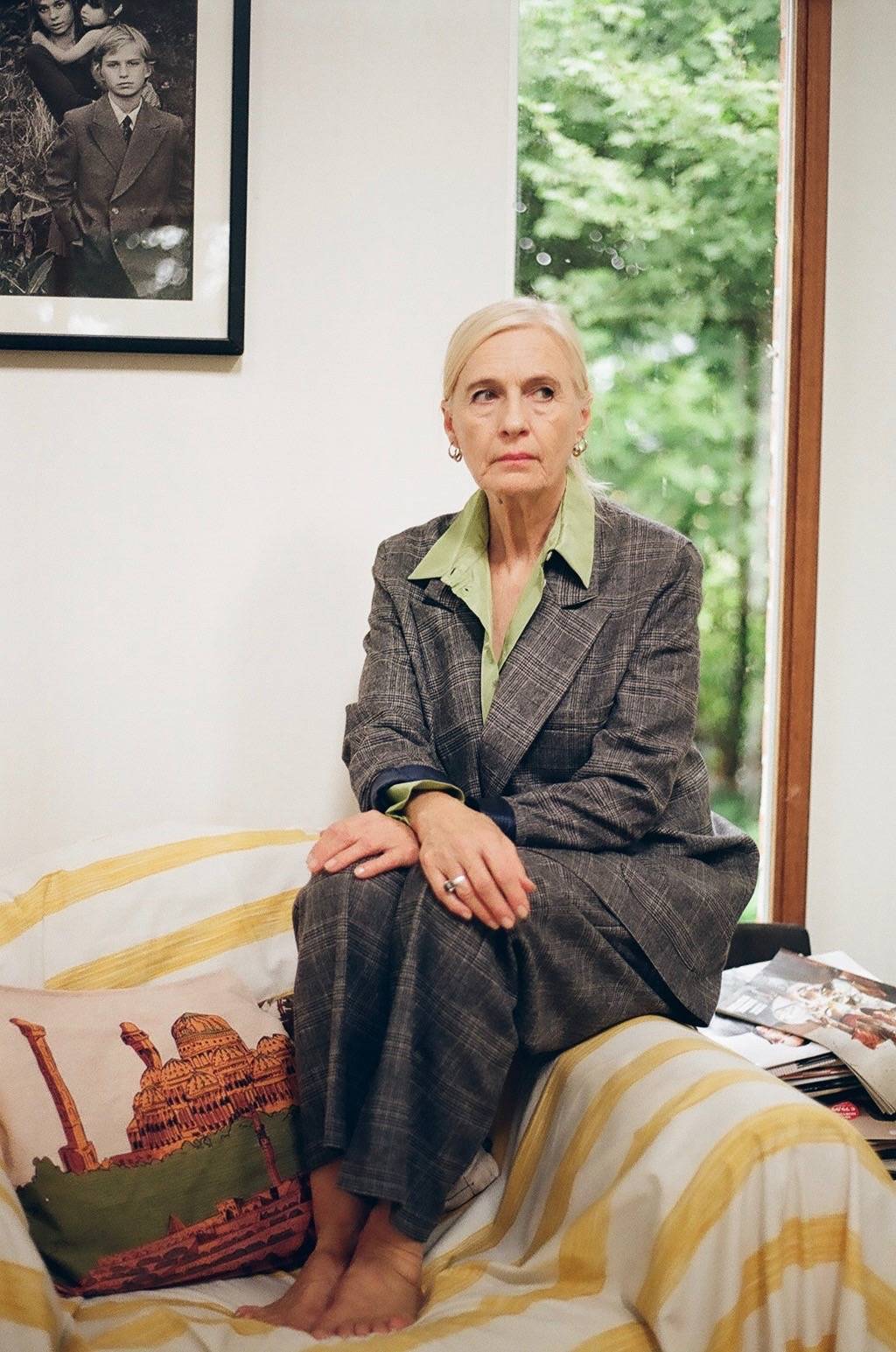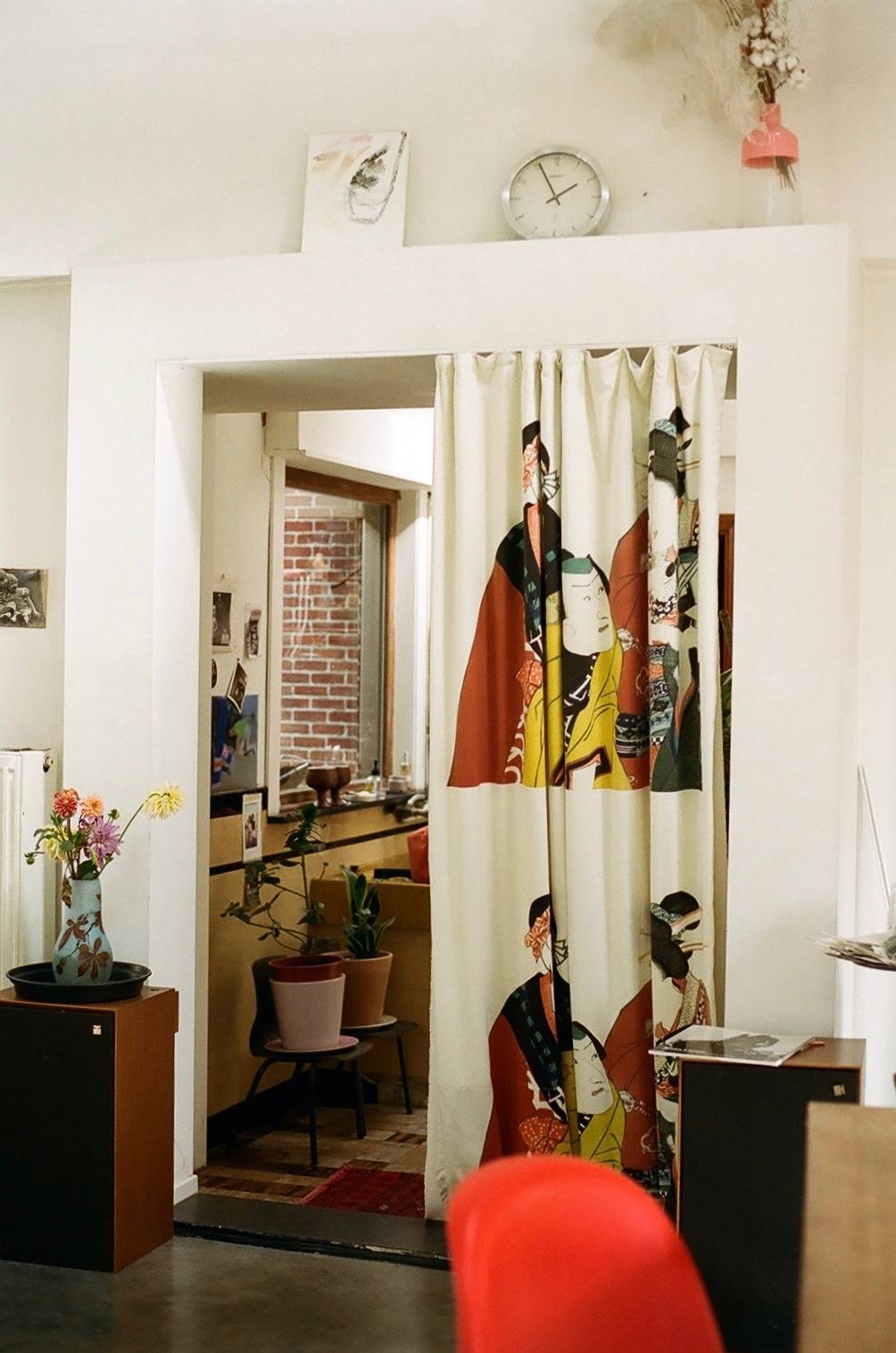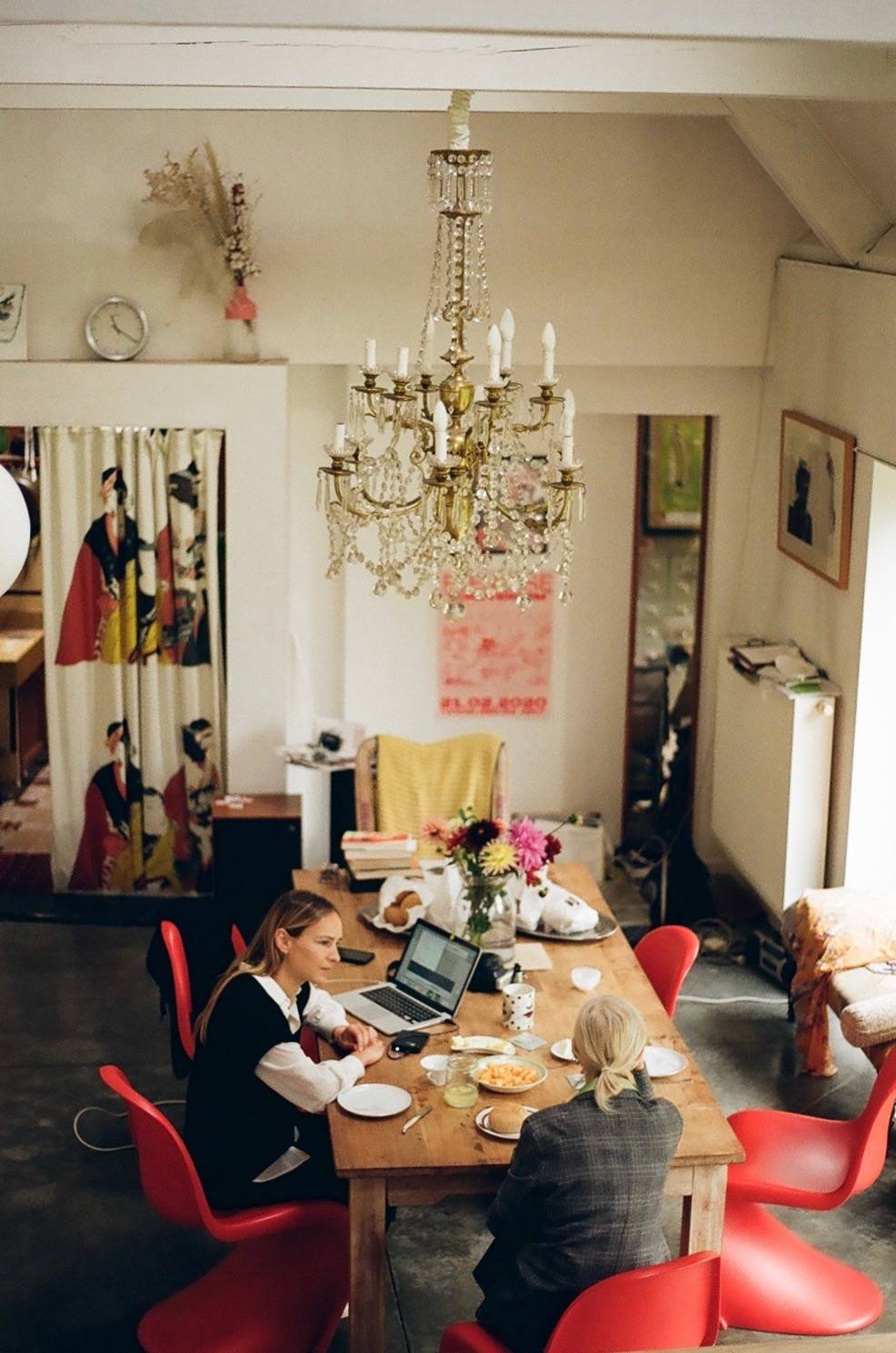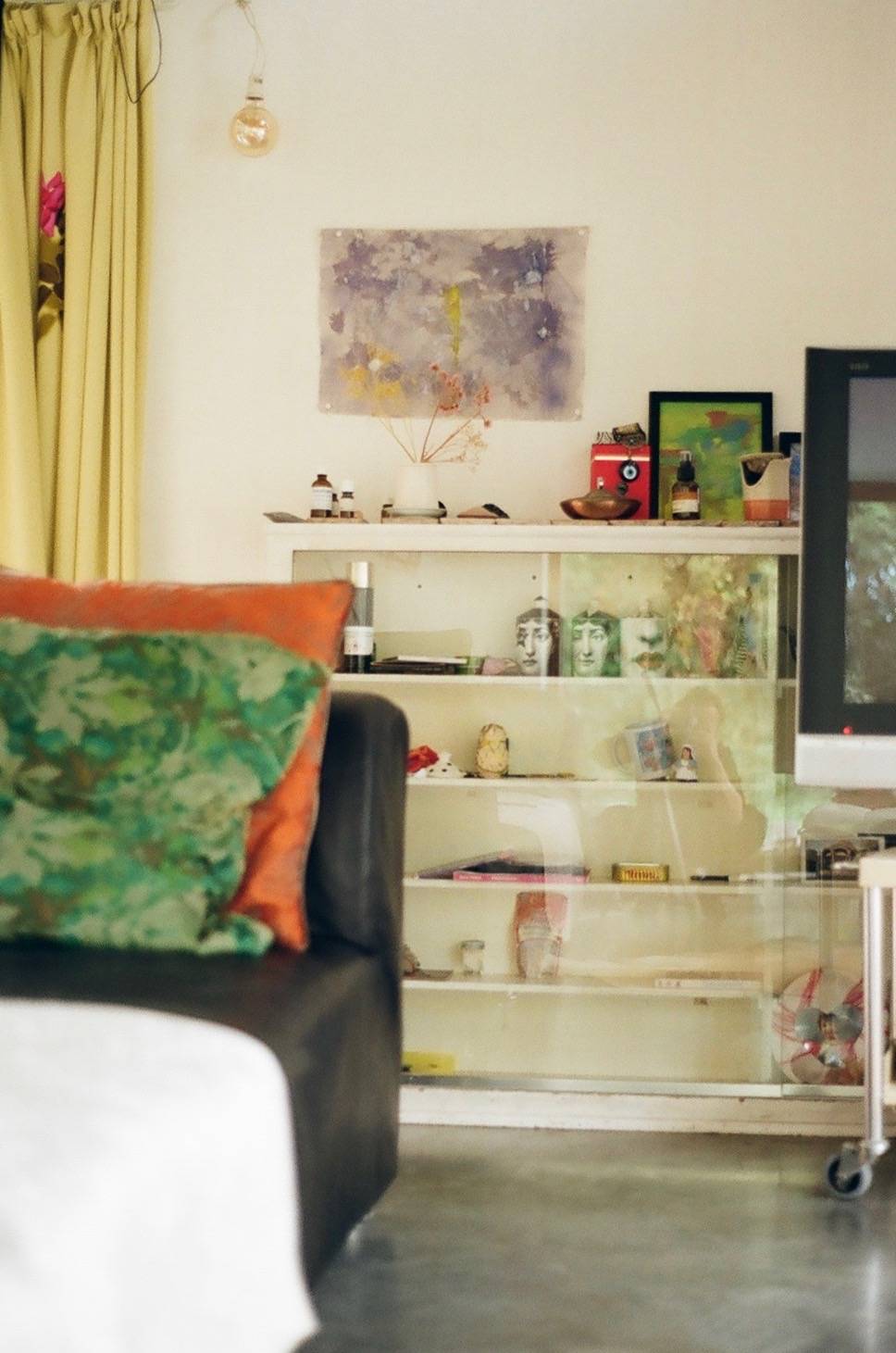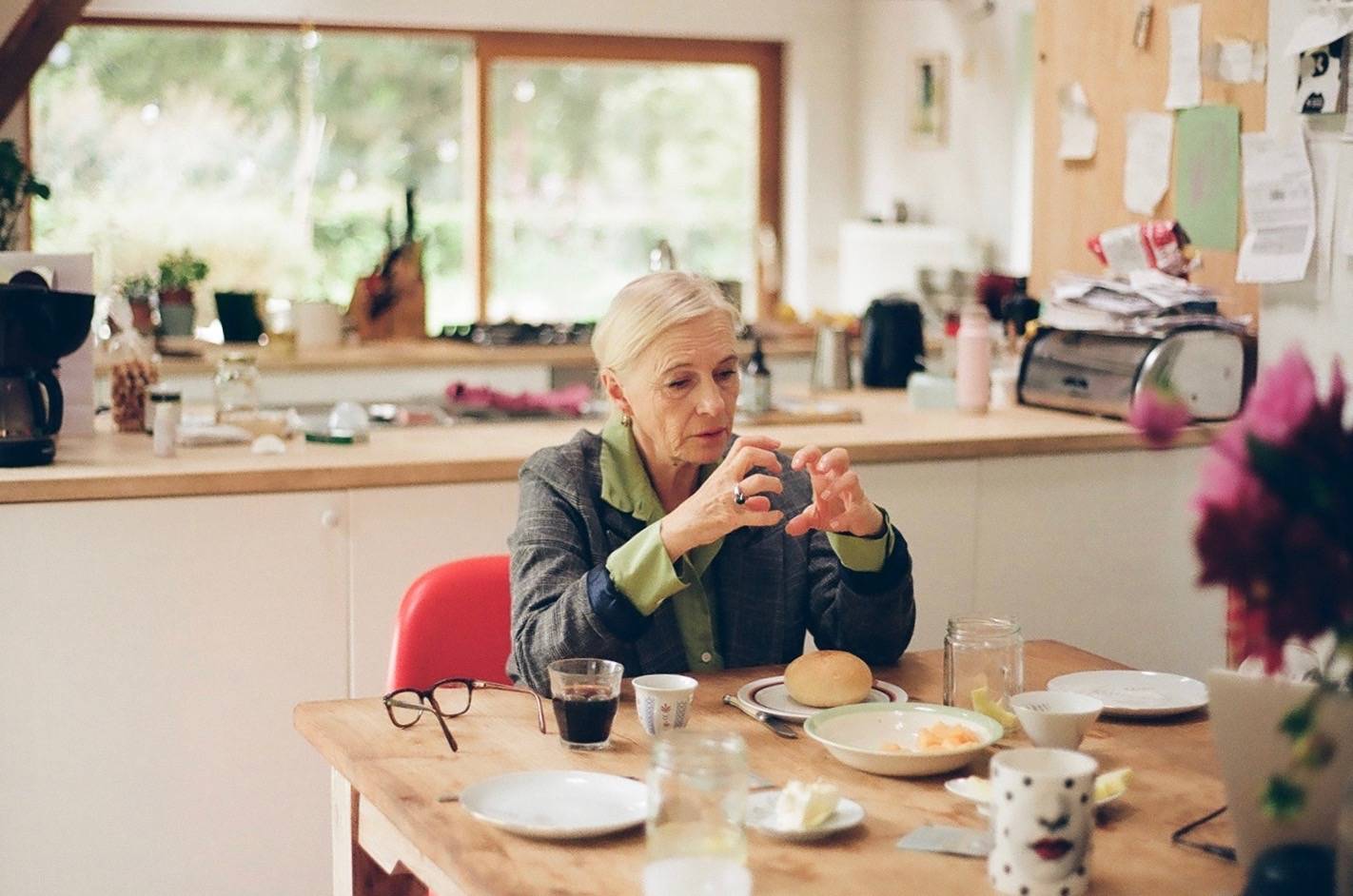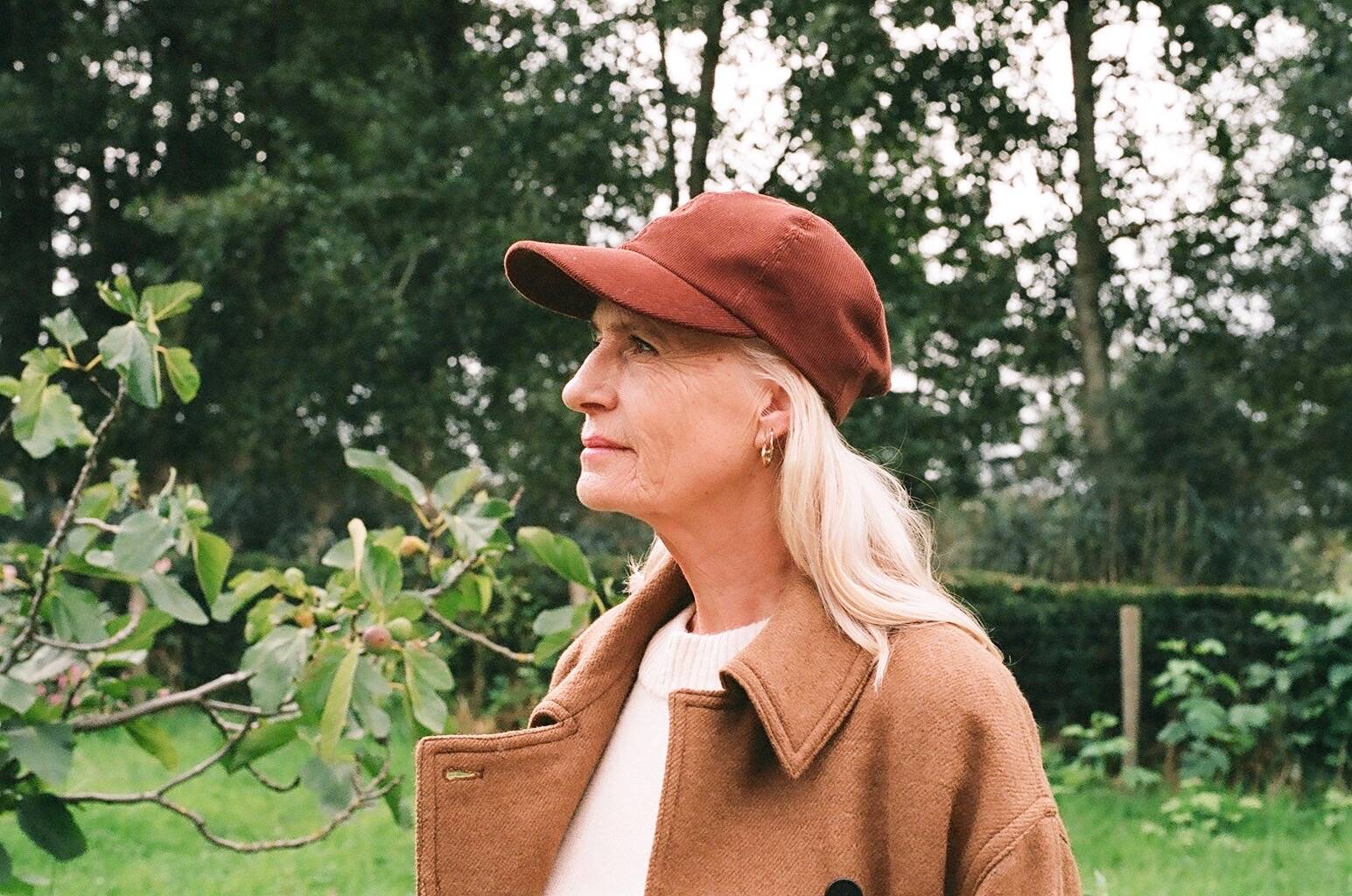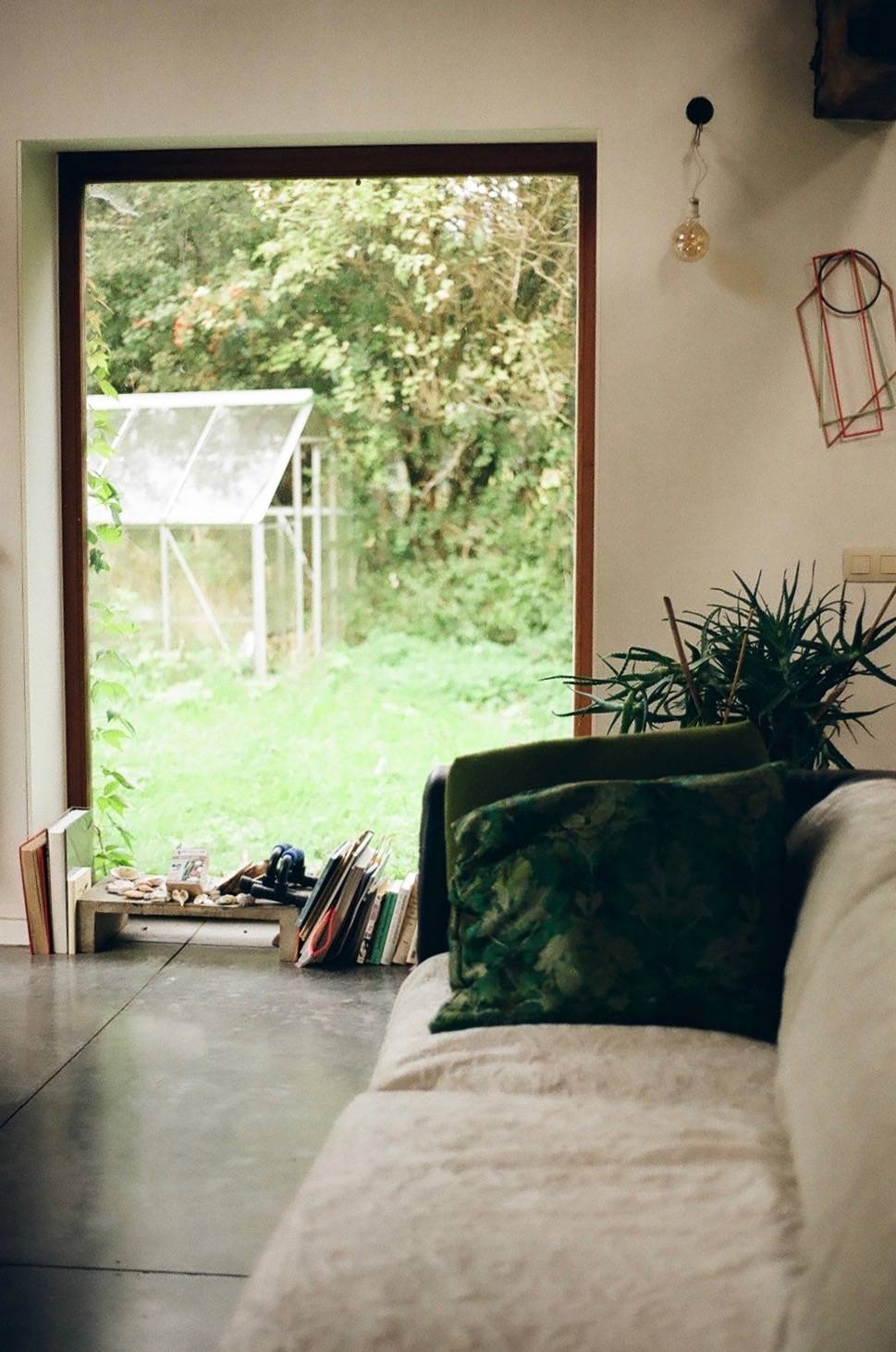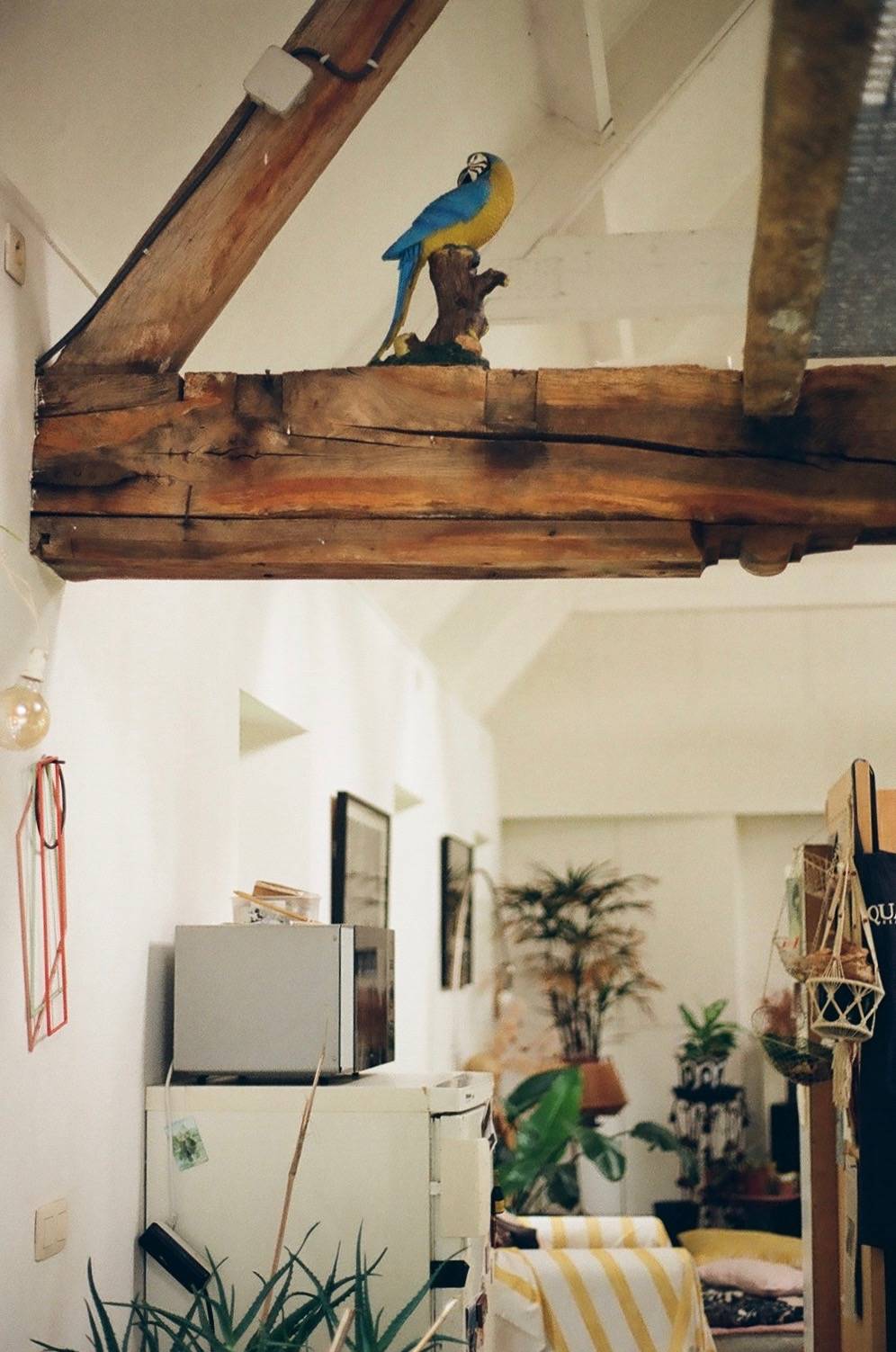#rueblanche
portraits
A series of conversations with friends and customers of Rue Blanche who inspire us in the way they dress, live and look at the world.
MARIJKE PINOY
When we arrive at the Flemish village of Evergem, near Ghent, we don't easily find Marijke Pinoy’s red brick house. Until she bought the property, it was uninhabited for a couple of decades and had become gradually concealed from view by an abundance of tall bushes and trees. Once located, we drink tea and talk in the high-ceilinged, light-flooded conservatory in the back of the house. Pinoy, a renowned actress, director, activist and professor at KASK Ghent (and mother of five) is possessed of a sunny and extrovert disposition. She speaks at a rapid clip, casually switching topics with the practised ease of a natural raconteur.
Photography © Mieke Verbijlen
What does home mean to you?
I am fully aware that having a home is a massive privilege, especially in these turbulent times, when so many people are forced into displacement. But for me personally, the concept of home can be a mindset. Luckily I would say, since I have to travel for work a lot, that I can feel at home very far away from my own, with people I have never met before.
What is the place you can't wait to return to?
Paris.
What makes your house a home?
I guess my house in Evergem is like me: a bit messy and in constant movement. As I told you, I am aware of my privilege: when I step through the door and into the house, memories connect me to the life I’ve lived. The objects that I’ve scrambled together throughout the years tell a story about me, books remind me of my work, and the pictures, drawings and poems shine a light on my family life. Having raised five children, I got used to an animated house, so I still enjoy hosting and cooking the most. I guess my house feels most like home when it’s filled to the brim with real opinions, laughter and noise.
What is your favourite object in your home?
The framed photographs that Kris Dewitte took of my children. One was taken for my fiftieth birthday, the second one ten years later. They are a good impression of my life.
What is your favourite thing to do in Evergem, besides spending time at home with people?
Since Covid, I have rediscovered the kerkstraatjes (church streets) in Evergem, narrow connecting streets that allow for great walks among the meadows. And I love going to the Saturday market.
Is connecting with people essential to your happiness?
Totally! I need to step outside myself and make a connection with the world. As an actress and a mother of five, I was always surrounded with people, you know. If you are implying that connecting with myself is a little bit less natural for “someone like me”, you’re completely right (laughs)! Arend, my oldest son who’s a dancer and actor, confronts me a lot with that aspect of my being. He is fully capable of handling a multitude of things, but he can equally slow down and zoom in when the situation demands it. I can definitely still learn a lot from my children (laughs).
Picture of grandchild Ellis-Mikky in Thailand and poster from Peenoise, a Flemish band in which three of Marijke's sons play.
The objects that I’ve scrambled together throughout the years tell a story about me, books remind me of my work, and the pictures, drawings and poems shine a light on my family life.
Do you enjoy being alone?
Don’t get me wrong, I don’t break down on my own. Especially when I travel for work, I spend a lot of time alone. I enjoy it and treat it as an existential exercise. I visit museums and churches and in these moments I can experience a deep inner serenity. The architecture – the scenography – of a church, always makes me emotional. For Easter, I joined a mass in the Sacré-Cœur once. The setting, the language, the whole thing was so immersive. Like a theatre play, in fact.
Are you a Catholic?
I was raised Catholic but growing up (in Geluwe, a small village on the Belgian border with France) I rejected my parents’ faith. It was oppressive, and I felt that it wanted to take away my free will. Guilt and penance was a central part of being Catholic back then. The village priest intervened in your life and shamed your parents because of some little thing you did. Prohibition triggers people, but nonetheless, it seemed preferable that people lived cramped and unhappy. So as a teen, I renounced the power emanating from it, the repulsive breath of the pastor – always a little bit too close, you know. The hypocrisy, basically! As I grew older, I reclaimed some parts of it. And I always retained my attraction to the stories, Madonnas and the figure of Mary. I guess I regained my ability to make abstractions of the rituals and the language of Catholicism again.
Do you have a favourite work of art?
The Gates of Hell by Auguste Rodin.
Christianity again!
Yes (laughs). My first battle!
Were there other battles after that?
Oh yes, it was a different time. To gain freedom as a woman in those days you had to struggle against many things! My mother taught me in the day-to-day what it is to be a strong woman, but she couldn’t teach me equal thinking. As a girl you simply had less rights, you weren’t affirmed like men. My brother didn't have to work in the household, got the biggest piece of meat and could join my father everywhere. A girl wasn’t allowed those privileges. I resisted very strongly the idea that a woman was not equal to a man. It was lonely at times: you were rejected and stigmatised for resisting the norms. I was a brightly coloured bird, you know (laughs).
Speaking of colours, did your protest extend itself to your way of dressing?
You could say that indeed. As a teen, I used to walk around my village in a bright canary-yellow men’s suit, and my jewellery, make-up and hair colour were noticeably different, to say the least. The older I got, the less I needed to stand out. I now try to gradually move more towards decent quality and essential pieces.
What is your favourite piece of clothing?
A silk scarf with a beautiful drawing of a swan on it, made for me by a costumier for a performance. When I’m on tour, I always carry it with me. When I'm in a dull hotel room without any character, it makes me feel at home.
In what piece of clothing do you always feel yourself?
I worked with students in the school of arts in Mosul, in Iraq, two years ago to develop short films in collaboration with other artists. During my stay, I bought a long dark green dress that takes me back to this beautiful project and that I will cherish forever.
Which garment from the Rue Blanche AW23 collection is on your wish list?
The pinstripe Rizo trousers, the white cotton Yra Bis shirt, and the navy Lumina V.
As a teen, I used to walk around my village in a bright canary-yellow men’s suit (...) The older I got, the less I needed to stand out. I now try to gradually move more towards decent quality and essential pieces.
"Each object tells its own story: the table and chandelier belonged to my daughter-in-law Delphine, the red chairs belonged to my son-in-law Marc (...)."
Who do you think has good style?
My daughter-in-law Delphine, who works in fashion since many years, and all the young people that I know. I admire the style of people who dare to be fanatic and set trends rather than follow them, using their creativity and sensitivity. I appreciate that young people buy a lot of second-hand clothes, and think more consciously than my generation did. Another wonderful evolution in fashion for me, is that gender norms are being challenged. About time, I would say!
Are clothes important to you?
Since my mother was a professional seamstress, I grew up wearing matching sets and playing with patches of fabric and needles. While I wish that outward appearance was not important at all in this world, I understand that clothes are not trivial! We show ourselves and step into the world every day. That’s not nothing! Clothes can help a person show what’s important to them and what they are about with a single glance.
Clothes are important in your work as well?
The first time an audience sees you come up: when the clothes are right, it’s a powerful entrance. A character can come to life through what they wear. Shoes are equally essential. The shoes I wear during rehearsal have to be the shoes I wear during the performance. A rule I live by (laughs)!
The first time an audience sees you come up: when the clothes are right, it’s a powerful entrance.
Who do you admire as a person?
I admire people who dedicate their lives to others, like Evelyne Huughe, the coordinator of a non-profit organisation in Ghent. And people like Maliki, a student I had the honour of meeting through teaching in KASK. As a trans woman, she has to fight a battle to be herself. Brave people, in other words.
The best book you've read in the past year?
The Years (Les années) by Annie Ernaux. Can I add a second one?
Yes, of course!
The Universal Declaration of Human Rights with the foreword by Phara Karimi, a Dutch ex-politician of Iranian descent. I've been rereading this recently.
Do you have any regrets?
Like everyone my age, I would have done some things differently. My life was bumpy at times. I mostly raised my five kids alone. When I was younger, I had the tendency to block regret, but I am learning to express it more now. Expressing regret can be powerful!
What are you looking forward to?
My family and I are making a theatre play together. I am very much looking forward to that!
Living room details.

